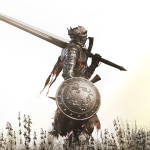|
Welcome goonlings to the Awful Book of the Month! In this thread, we choose one work of Resources: Project Gutenberg - http://www.gutenberg.org - A database of over 17000 books available online. If you can suggest books from here, that'd be the best. SparkNotes - http://www.sparknotes.com/ - A very helpful Cliffnotes-esque site, but much better, in my opinion. If you happen to come in late and need to catch-up, you can get great character/chapter/plot summaries here.  For recommendations on future material, suggestions on how to improve the club, or just a general rant, feel free to PM me. For recommendations on future material, suggestions on how to improve the club, or just a general rant, feel free to PM me.  Past Books of the Month [for BOTM before 2014, refer to archives] 2014: January: Ursula K. LeGuin - The Left Hand of Darkness February: Mikhail Bulgalov - Master & Margarita March: Richard P. Feynman -- Surely You're Joking, Mr. Feynman! April: James Joyce -- Dubliners May: Gabriel Garcia Marquez -- 100 Years of Solitude June: Howard Zinn -- A People's History of the United States July: Mary Renault -- The Last of the Wine August: Barbara Tuchtman -- The Guns of August September: Jane Austen -- Pride and Prejudice October: Roger Zelazny -- A Night in the Lonesome October November: John Gardner -- Grendel December: Christopher Moore -- The Stupidest Angel 2015: January: Italo Calvino -- Invisible Cities February: Karl Ove Knausgaard -- My Struggle: Book 1. March: Knut Hamsun -- Hunger April: Liu Cixin -- 三体 ( The Three-Body Problem) May: John Steinbeck -- Cannery Row June: Truman Capote -- In Cold Blood (Hiatus) August: Ta-Nehisi Coates -- Between the World and Me September: Wilkie Collins -- The Moonstone October:Seth Dickinson -- The Traitor Baru Cormorant November:Svetlana Alexievich -- Voices from Chernobyl December: Michael Chabon -- Gentlemen of the Road 2016: January: Three Men in a Boat (To say nothing of the Dog!) by Jerome K. Jerome February:The March Up Country (The Anabasis) of Xenophon March: The Name of the Rose by Umberto Eco April: Plain Tales from the Hills by Rudyard Kipling May: Temple of the Golden Pavilion by Yukio Mishima June:The Vegetarian by Han Kang July:Lud-in-the-Mist by Hope Mirrlees August: Pale Fire by Vladimir Nabokov September:Siddhartha by Herman Hesse October:Right Ho, Jeeves by P.G. Wodehouse November:Kitchen Confidential by Anthony Bourdain December: It Can't Happen Here by Sinclair Lewis 2017: January: Mother Night by Kurt Vonnegut February: The Plague by Albert Camus March: The Dispossessed by Ursula K. LeGuin April: The Conference of the Birds (مقامات الطیور) by Farid ud-Din Attar May: I, Claudius by Robert Graves June: Salt: A World History by Mark Kurlansky July: Ficcionies by Jorge Luis Borges August: My Life and Hard Times by James Thurber September: The Peregrine by J.A. Baker Blackwater Vol. I: The Flood by Michael McDowell Aquarium by David Vann December: Sir Gawaine and the Green Knight [Author Unknown] Current:  Njal's Saga[Author Unknown] Book available here: Project Gutenberg (Dasent Translation): https://www.gutenberg.org/files/17919/17919-h/17919-h.htm Kindle Ebook of Modern Cook Translation: https://www.amazon.com/Njals-Penguin-Classics-Leifur-Eiricksson-ebook/dp/B002RI92IO About the book: Mel Mudkiper posted:that does sound good, but on the other hand we have nordic bloodfeuds quote:Njáls saga (modern Icelandic pronunciation: About this sound listen (help·info)) (also Njála (About this sound listen (help·info)), Brennu-Njáls saga (About this sound listen (help·info)) or "The Story of Burnt Njáll") is a thirteenth-century Icelandic saga that describes events between 960 and 1020. The principal characters are the friends Njáll Ţorgeirsson,[1] a lawyer and a sage, and Gunnar Hámundarson, a formidable warrior. Gunnar's wife instigates a feud that leads to the death of many characters over several decades including the killing by fire of the eponymous "Burnt Njáll". The saga deals with this process of blood feuds in the Icelandic Commonwealth, showing how the requirements of honor could lead to minor slights spiralling into destructive and prolonged bloodshed. Insults where a character's manhood is called into question are especially prominent and may reflect an author critical of an overly restrictive ideal of masculinity.[2] Another characteristic of the narrative is the presence of omens and prophetic dreams. It is disputed whether this reflects a fatalistic outlook on the part of the author. About the Author quote:Njáls saga, like the other sagas of Icelanders, is anonymous. There are, however, many theories about the saga's authorship. The oldest idea, attested in the early 17th century, is that Sćmundr fróđi wrote the work. Other suggested authors include Sćmundr's sons, Jón Loftsson, Snorri Sturluson, Einarr Gilsson, Brandr Jónsson and Ţorvarđr Ţórarinsson.[4] Translations DeadFatDuckFat posted:Any recommendation on which translation to get? chernobyl kinsman posted:oh i forgot about magnusson. cook is fine, it has more recent scholarship behind it. chernobyl kinsman posted:yes, actually! this one is pretty good. there's also an excellent book by Jesse L. Byock, a great scholar who's done a ton of translation work. Themes quote:Njáls saga explores the consequences of vengeance as a defence of family honor by dealing with a blood feud spanning some 50 years. The saga shows how even worthy people can destroy themselves by disputes and demonstrates the tensions in the Icelandic Commonwealth which eventually led to its destruction.[11] Any insult to one's honor had to be revenged: sometimes this includes slights which seem trivial to modern readers. Magnus Magnusson finds it "a little pathetic, now, to read how vulnerable these men were to calls on their honour; it was fatally easy to goad them into action to avenge some suspicion of an insult".[12] quote:According to the libertarian theorist David D. Friedman, "Medieval Icelandic institutions have several peculiar and interesting characteristics; they might almost have been invented by a mad economist to test the lengths to which market systems could supplant government in its most fundamental functions."[23] While not directly labeling it anarcho-capitalist, he argues that the legal system came close to being a real-world anarcho-capitalist legal system[24] – while there was a single legal system, enforcement of law was entirely private and highly capitalist; and so provides some evidence of how such a society would function. "Even where the Icelandic legal system recognized an essentially "public" offense, it dealt with it by giving some individual (in some cases chosen by lot from those affected) the right to pursue the case and collect the resulting fine, thus fitting it into an essentially private system."[23] quote:In the early 13th century, the Age of the Sturlungs, the Commonwealth began to suffer from chaos and division resulting from internal disputes. Originally, the gođar functioned more than a contractual relationship than a fixed geographic chieftaincy. However, by 1220 this form of communal leadership was replaced by dominant regional individuals who battled with one another for more control. One historian argues the chaos and violence of this period stem from an imbalance of power and changes in the nature of Icelandic warfare. The separation of secular and ecclesiastical power led some families and regional networks to become stronger at the expense of others, leading to an imbalance of power.[19] The introduction of pitched battles and harassment of farmers on a regional basis raised the stakes and dangers.[19] Pacing Read as thou wilt is the whole of the law. Please bookmark the thread to encourage discussion. I encourage people to read whatever translations they find and compare notes in the thread. References and Further Reading https://en.wikipedia.org/wiki/Icelandic_Commonwealth https://en.wikipedia.org/wiki/Nj%C3%A1ls_saga http://icelandmag.visir.is/article/after-2-years-and-8-months-work-njala-tapestry-half-completed Final Note: Thanks, and I hope everyone enjoys the book!
|
|
|
|
|

|
| # ? Apr 26, 2024 16:14 |
|
Thanks for the links chernobyl kinsman, looks fun. Reading and picking out words and phrases that I could understand from the Green Knight was great. Would be fun to do the same with some of the sagas some day. I got the Penguin edition of Njal's Saga yesterday, the Cook translation. I read it ages ago, but in Swedish, so I'm really looking forward to checking it out in English.
|
|
|
|
One thing I love about reading ancient prose is seeing parts where modern narrative conventions didn't exist and so the storytelling becomes jarring Like how new characters are introduced by the author just going "Now there are three new characters in the story"
|
|
|
Mel Mudkiper posted:One thing I love about reading ancient prose is seeing parts where modern narrative conventions didn't exist and so the storytelling becomes jarring I love the opening to Egil's Saga for this reason. "So there was this guy named [Scandinavian name] and he was a were-bear and a famous warrior. Anyway, his grandkid . . . ." And the entire rest of the saga is about his grandkid, Egil, and the bear thing is never mentioned again, that's just a perfectly normal thing some people are, like having a noteworthy mole, because Chekhov's gun is 900 years in the future. It's sometimes easy to forget, given how polished the sagas can be, that they're some of the oldest fiction in the world. Hieronymous Alloy fucked around with this message at 19:51 on Jan 8, 2018 |
|
|
|
|
At first I wanted to skip the first paragraph of almost every chapter because of the "this person, who was the son of X was begat by Y who was the great grandson of B ect" but I learned to love it because of the seemingly all vowel spellings of the names. I did get the distinct feeling that the first third of this book could be summed up with this scene however: https://www.youtube.com/watch?v=mRRDzc25uxs
|
|
|
|
Best thing put down from the Sagas is still the following:quote:Then he went to the outer door and saw nobody there. It was raining hard, so he did not go outside, but stood holding both the door-posts with his hands and peering round. At that moment Thorbjorn sidled round to the front of the door and thrust his spear with both hands into Atli's middle, so that it pierced him through. Atli said when he received the thrust: "They use broad spear-blades nowadays." - Grettir's Saga (1900 translation)
|
|
|
|
Now onto the matter at hand, this character is a genius:quote:"Well," says Thorarin, "'tis not with thee as the saw says, 'be warned by another's woe'; for she was wedded to a man, and she plotted his death."
|
|
|
|
BravestOfTheLamps posted:Best thing put down from the Sagas is still the following: There's a lot of good, laconic oneliners in these, like when they try to figure out if Gunnar is at home. I suppose it goes well with the oral tradition but I wonder how much of it was actually said by the person it is attributed to and how much of it was refined later. I could easily se it being "a thing" and how people would weigh their words in order to produce something cool.
|
|
|
|
Fögur er hlíđin.
|
|
|
|
Arson Daily posted:At first I wanted to skip the first paragraph of almost every chapter because of the "this person, who was the son of X was begat by Y who was the great grandson of B ect" but I learned to love it because of the seemingly all vowel spellings of the names. I did get the distinct feeling that the first third of this book could be summed up with this scene however: A lot of the set-up feels cumbersome, since I don't overly care about the grand parents of this or that character, but on the other hand you run across stuff like this: "There was a man named Atli, the son of Earl Arnvid of Gotland. He was a great warrior and had his base in Lake Malaren, with a fleet of eight ships. His father had withheld paying tribute to Hakon, foster-son of King Athelstan, and then fled with his son from Jämtland to Gotland." While not particularly interesting, I thought it was cool since I happened to grow up in Jämtland, and now have found myself moved to Gotland. I imagine lots of the other details must be quite cool if you actually grew up on Iceland, and happened to be familiar with the geography there, as well as the farms and families. That said, it always feels good when a character is out of the saga. BravestOfTheLamps posted:Now onto the matter at hand, this character is a genius: There are some poorly thought out marriages in this book... I'm not sure why Hallgerd is being such a dickhead either. Gunnar and Njal seems fine with an eye for an eye, and that seems like a fair legal custom, so it seems weird when Hallgerd in the beginning keeps upping the ante, and killing more people whenever the families reach equilibrium. The cheese theft seems completely unnecessary too.
|
|
|
|
ovenboy posted:I'm not sure why Hallgerd is being such a dickhead either. Gunnar and Njal seems fine with an eye for an eye, and that seems like a fair legal custom, so it seems weird when Hallgerd in the beginning keeps upping the ante, and killing more people whenever the families reach equilibrium. The cheese theft seems completely unnecessary too. Wergild or an eye for an eye might satisfy the law, but it doesn't necessarily satisfy those who are left behind. Hallgerd holds grudges really hard.
|
|
|
|
So, the lovely version of the Saga that Amazon forces upon me when I try to check out the Cook translation from my elibrary says this:quote:"So shall it be," she answered, and sang two songs, in which she revealed the cause of their misunderstanding; and when Mord pressed her to speak out, she told him how she and Hurt could not live together, because he was spellbound, and that she wished to leave him. Meanwhile, in Cook... quote:She answered, 'When he comes close to me his penis is so large that he can't have any satisfaction from me, and yet we've both tried every possible way to enjoy each other, but nothing works. By the time we part, however, he shows that he's just like other men.' 
Dr. Kloctopussy fucked around with this message at 01:19 on Jan 17, 2018 |
|
|
|
isn;t that the victorian translation that edited out all the unseemly sex stuff
|
|
|
|
I've tried to read this saga twice in the past ten years but I'm a slow reader and life stuff just kept popping up before I could finish either time. My memory is foggy; one of the things I seem to remember was that one woman character (Hallgerd?) decided she wanted to marry someone and went ahead to the Allthing to get it done and I was impressed, I didn't expect to read about a woman taking control of her life like that, so cool. Then she went and did poo poo like this: ovenboy posted:I'm not sure why Hallgerd is being such a dickhead either. Gunnar and Njal seems fine with an eye for an eye, and that seems like a fair legal custom, so it seems weird when Hallgerd in the beginning keeps upping the ante, and killing more people whenever the families reach equilibrium. The cheese theft seems completely unnecessary too. I wished she could be assertive by fighting her own battles or something instead of sending people to their deaths over and over. (Do we need to spoiler?) Of course I don't know much about what the law was like at the time and at least it was a great illustration of how stupid cycles of violence can get. Dr. Kloctopussy posted:"So shall it be," she answered, and sang two songs, in which she revealed the cause of their misunderstanding; and when More pressed her to speak out, she told him how she and Hurt could not live together, because he was spellbound, and that she wished to leave him. Yeah seems unfair for the translation to say "spellbound" and leave it at that, did your Amazon version explain the source of the spell either?: Cook's translation posted:"If I have as much power over you as I think I have, then I cast this spell: you will not have sexual pleasure with the woman you plan to marry in Iceland, though you'll be able to have your will with other women. Neither of us comes out of this well, because you did not tell me the truth." The way she prefaces the curse it sounds more like a nice guilt trip/self-fulfilling prophecy.
|
|
|
|
Mel Mudkiper posted:isn;t that the victorian translation that edited out all the unseemly sex stuff Apparently so (it's the one by George Webbe Dasent in 1861). Semi-tangential rant: I'm livid that I can't get the Penguin Classics edition on my kindle when it's the one listed in the elibrary, and I can read it through the elibrary app on my tablet. Amazon's response to my angry emails is telling me to email my local library, which I did, but this is pretty clearly an issue their side, since they also link to these stupid editions if you try to buy the kindle version from the Penguin Edition page.This happened with Chaucer, too, and I'm expecting the same when I finally get the Oliver Ready translation of Crime and Punishment I'm on the waitlist for. 
|
|
|
|
Dr. Kloctopussy posted:Apparently so (it's the one by George Webbe Dasent in 1861). Yeah the Webbe one is basically a whole new book because he took the story and edited out everything that would be offensive or against the tastes of the reader of his era Speaking of weird sex poo poo in classic literature, this will always be my fav From the Tain Bo Cualinge quote:“Then Medb got her gush of blood.
|
|
|
|
Weird sex poo poo such as a period
|
|
|
|
that is a 100% accurate description of how menstruation works
|
|
|
|
CestMoi posted:Weird sex poo poo such as a period lol
|
|
|
|
CestMoi posted:Weird sex poo poo such as a period I didn;t have a better category to put "witch periods a river that creates a cursed valley" and I have no regrets
|
|
|
|
Mel Mudkiper posted:I didn;t have a better category to put "witch periods a river that creates a cursed valley" and I have no regrets "loving awesome"
|
|
|
|
In 1980 director Friđrik Ţór Friđriksson made a short film inspired by the Saga of Burned Njal. He advertised it extensively in various newspapers and a lot of curious and exited people showed up to the premiere only to find out that the film was not an adaptation but a experimental short in which someone sets fire to a copy of the book and we watch it burn to a crisp in real time. This has since been interpreted as a sort of declaration of independence for Icelandic film making, an attempt by a newer medium to break free from the shackles of tradition and create it's own identity as well as a screed against ideas about the importance faithfulness in adaptation. Friđrik has said that he just thought it would be funny.
|
|
|
|
if you like Njal's Saga for the plot and combat I highly recommend Grettir's Saga, my personal favorite of the sagas. It has a lot of spooky stuff and also a connection to Beowulf. If you liked it for the weird inscrutable poo poo then I recommend Eyrbyggja saga, which opens with a war between two families that starts because one family won't stop making GBS threads on another family's sacred land. It also includes a blood rain, a scene in which a ghost seal pops its head up through the floor of a hall and a kid has to hammer it back down, and a haunting which is settled by legally evicting the ghosts. It owns.
|
|
|
|
|
So what exactly does a "horse fight" entail and how does one win? It seems like the human contestants aren't actually riding the horses but just standing behind them and pushing them?
|
|
|
DeadFatDuckFat posted:So what exactly does a "horse fight" entail and how does one win? It seems like the human contestants aren't actually riding the horses but just standing behind them and pushing them? you make the horses fight
|
|
|
|
|
reminds of how we found out that early humans domesticated chickens because we loved watching them fight each other and then we got used to eating the loser and decided they were pretty good
|
|
|
|
Pretty cool horse pic in that link. edit:I've yet to read the full version of that article Also, do the other sagas have as much of the psychic prediction (I don't know what to call it) kind of thing where one person flat out says "you're gonna die" or "this is going to be bad" and it comes true immediately afterwards? I can see why you would want to emphasize how wise someone is by having them predict the future, but it seems like a weird thing to have it happen so often with lots of different people unless it's just a common device used in old norse stories. DeadFatDuckFat fucked around with this message at 05:17 on Jan 19, 2018 |
|
|
DeadFatDuckFat posted:Pretty cool horse pic in that link. I guess since rules and stuff are vague, we don't know if the two brothers who pushed their horse into Gunnar's were "cheating"? It's been a while since I read the other sagas but from what I recall it's so common it seems to have been a general given of the Icelandic world. Sun rises in the morning, some people's grandfathers were bears, snow is cold, if you're smart and good at poems then you can probably predict the future everyone does it, I want your land let's duel for it, etc. other classic saga-related errrata: http://www.viking.ucla.edu/Scientific_American/Egils_Bones.htm
|
|
|
|
|
Oh we need suggestions for next month; right now I'm leaning very strongly towards The Sign of the Four.
|
|
|
|
|
Hieronymous Alloy posted:Oh we need suggestions for next month; right now I'm leaning very strongly towards The Sign of the Four. its literally two weeks away! Lets chillax and focus on the current book a little more first
|
|
|
|
Just got to the end. It's interesting how Mord Valgardson gets away completely with turning the Njalssons against their foster brother via his smack talk. Their culture seems to be heavily against the kind of thing that he did, especially when compared with Skammkel's character earlier in the saga. Mord has kind of a bad reputation, but I was expecting him to get axed pretty hard. I guess maybe he lives just because That's the Way It Happened?
|
|
|
|
Jumping in at the LAST POSSIBLE MOMENT to say I just finished the book and it was tight. I have thoughts: 1. This is not Burned Njal, he was clearly Smoked Njal, at best. At least his son Skarphedin got his lower body burned off, for that sweet burning action. (spoiler for a 1000 year old book) 2. I love the assholery some the characters have. Skarphedin has a great run of just burning every bridge possible when asking for allies, but then burns one bridge so hard that a previous guy comes back and says "That was awesome, I got your back now". (Chapter 120) Hrapp is also great. Context: Hrapp has just been sleeping with Gudbrand's daughter, when Gudbrand's servant (Asvard) caught them. Hrapp kills the dude, finds out the daughter is pregnant, and then strolls into Gudbrand's hall to let him know (which is the polite and honorable thing I suppose). quote:Gudbrand was sitting in his high seat, and only a few men were in the room. Hrapp walked up to him holding his axe high. 3. chernobyl kinsman, who suggested learning Old Norse in order to read this, is more optimistic about our chances than I was. Did anyone manage to do some reading from the Old Norse version? 4. About the law stuff: I thought it was interesting how so many of the procedures ended in arbitration, and how obsessed with formalism the saga was as the legal results became less and less satisfying to the concerned parties. Earlier y'all were talking about Hallgerd and Bergthora's proxy war, and I feel that's a direct parallel to all the events leading to the Althing brawl. One curiosity I had, about Hrut and Unn's divorce, was that both of the proceedings related to that ended with a declined challenge to duel. Could the various assault and murder cases have been 'settled' with duels, or was that just a property thing?
|
|
|
|
The whole text in Old Norse is here (sentence for sentence) with English underneath. https://www2.hf.uio.no/polyglotta/index.php?page=record&vid=908&mid=1606760 I can understand some of it having taken a course in Old Norse once. Reading the whole thing in ON seems pretty optimistic to me, but certainly reading a few bits of it could be a fun exercise. Some of it is pretty near English, to take some examples from the beginning: quote:Mǫrdr hét mađr, er kallađr var gígja mađr: the nominative form of "man", it's more recognizable in the accusative case (mann). kallađr: should be recognizable as "called." var: past tense of vera ("to be"), related to "were". quote:Hann var ríkr hǫfđingi ok málafylgjumađr mikill ok svá mikill lǫgmađr, at engir ţóttu lǫgligir dómar dśmđir, nema hann vćri viđ. ríkr: related to rich but should be understood as powerful. svá: means so. mikill: there is an archaic English word ("mickle") related to this. lǫgmađr: lǫg (law) + mađr ţóttu: past tense of ţykkja, mean something like "to consider" but also seem, appear. Related to English "think." dómar: plural of dómr. Means judgement and funnily enough related to "doom." vćri: subjunctive past tense of vera and also related to "were." I started reading this in Norwegian, but haven't had time to read much. I haven't even gotten to Njal and the actual story yet, but I enjoyed reading about Hrut, Unn, Hallgerd, Mord and the rest. My translation didn't censor the part about the marital problems either. I found an older translation from 1896 where it says in brackets that Unn tells her father "plainly" that Hrut is bewitched. thatdarnedbob posted:2. I love the assholery some the characters have. Skarphedin has a great run of just burning every bridge possible when asking for allies, but then burns one bridge so hard that a previous guy comes back and says "That was awesome, I got your back now". (Chapter 120) Hrapp is also great. Context: Hrapp has just been sleeping with Gudbrand's daughter, when Gudbrand's servant (Asvard) caught them. Hrapp kills the dude, finds out the daughter is pregnant, and then strolls into Gudbrand's hall to let him know (which is the polite and honorable thing I suppose). It was law that if you killed someone you had to report it, otherwise it would be killing in secret and therefore a murder. If I remember it right it would become a murder if afterwards you rode past three farmsteads. Then you would be declared an outlaw who could be killed by anyone. They were all about being able to defend yourself; if you killed someone who would have been able to fight back, it wasn't so bad as if it had been an assassination. Grevling fucked around with this message at 22:13 on Jan 30, 2018 |
|
|
|
the reason you were allowed to ride past three farmsteads, rather than having to report it at the nearest, is that the nearest might belong to the family of the guy you killed and then his family would merc you
|
|
|
|
|
Seems like a reasonable consideration. Hrapp's coolness and jerkness just keep going up, in my book.
|
|
|
|
Kestral posted:Wergild or an eye for an eye might satisfy the law, but it doesn't necessarily satisfy those who are left behind. Hallgerd holds grudges really hard. Yeah, no kidding. thatdarnedbob posted:Jumping in at the LAST POSSIBLE MOMENT to say I just finished the book and it was tight. I have thoughts: Same. There was lots of little cool moments or vignettes that'd pop up suddenly. For next month's book I think I need to take some notes while reading, because I kept thinking "this is really cool/bizarre" and then figured I'd remember it for the thread, but I was also reading the book just before bed so... Killer-Hrapp was a favourite though, what a dickhead. I also liked when the Njalssons went around trying to drum up support, and everyone they petitioned dunked on the pale, unlucky-looking, sharp-featured, troll-like man fifth in line. I generally liked the prescience in the book, and I suppose it is a mix of superstition (you're ugly, that's obviously bad luck from the start), and some of the wiser people just being good at figuring out which way the wind is blowing, and a pinch of regular old magic. The law was interesting, and how much weight was placed on the letter of the law rather than the spirit. Also: "This is our legal tactics for the lawsuit, and while we're planning, these are our martial tactics for the lawsuit, just in case."
|
|
|
|
Next BoTM will be The Sign of Four by Arthur Conan Doyle. Apologies no thread up yet, I've been swamped.
|
|
|
|
|
Hieronymous Alloy posted:Next BoTM will be The Sign of Four by Arthur Conan Doyle. Apologies no thread up yet, I've been swamped. Cool, I think I've got that one lying around somewhere. I appreciate that you take time out of your day to think about and post these threads!
|
|
|
|
My community college will actually have that one, so I can read a physical copy. I heard every single line of Njal in the voice of jarl Balgruff. I didnt mean to and couldn't stop.
|
|
|
|

|
| # ? Apr 26, 2024 16:14 |
|
Meanwhile, I only just got my copy of Njal's Saga, so I'll be starting that today and reporting in long after everyone else has moved on to The Sign of Four. 
|
|
|
























